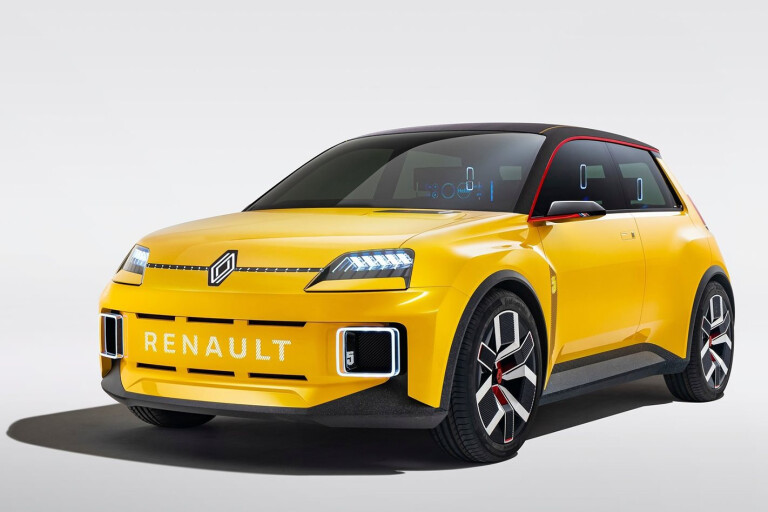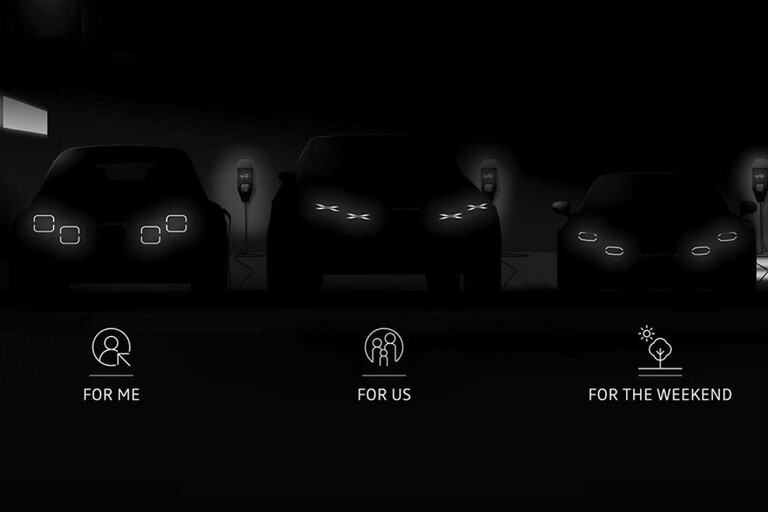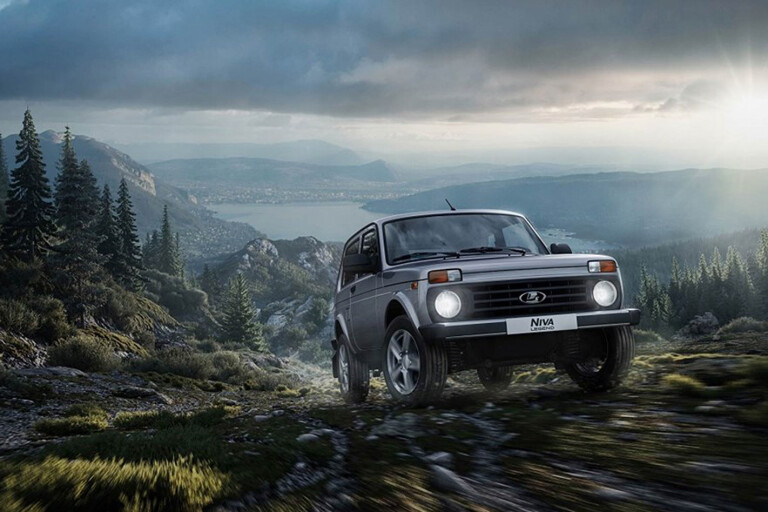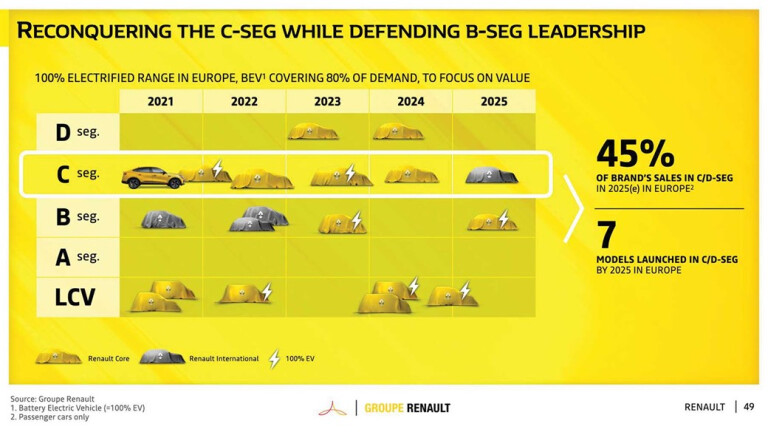.jpg )
Renault has revealed its 'Renaulution' plan that will see it launch at least seven new models in the next three years (including five electric cars).
It will also bolster the reborn Alpine sportscar brand, combine European budget brands Lada and Dacia, restore faith in the fracturing Renault-Nissan-Mitsubishi Alliance, and cut costs by five per cent in five years.
The plan includes ushering in a new electric sports car co-developed with between Alpine and Lotus, plus a hot hatch, sporty crossover, Renault 5 retro EV and new models for the Lada and Dacia brands.
Renaulution is the brainchild of new CEO Luca de Meo, whose mission is to turn the French car-making giant around.

Key highlights of the new strategy include:
- The all-electric Renault 5 shown as a prototype for now and expected in 2023
- Alpine becomes 100 per cent electric, with a next-generation EV sports car (in development) with Lotus
- Range of three Alpine models outlined, including a hot hatch and sporty crossover
- Group platforms cut from six to three as part of major cost-cutting drive
- Electrification: number of powertrains halved to four, as EVs boosted
- Some factories likely to be closed as production capacity slashed from 4 million to 3.1m
- Goal to achieve electric leadership by 2025
- Dacia and Lada paired up – Lada moving beyond Russia to become 'rough and tough' entry-level brand
- New Dacia Bigster concept points to a larger, slicker family crossover
- More car-sharing and future mobility projects
Alpine goes fully electric
Significant for enthusiasts is the news that Alpine will become 100 per cent electric, using the group's CMF-B and CMF-EV platforms.
Importantly, this shows that multiple body styles are coming, including a new junior crossover.
The announcement included confirmation of an exciting Anglo-French alliance.
"Renault and Group Lotus have signed a memorandum of understanding to study a number of areas of cooperation, including the joint development of an EV sports car," said the statement.

The above slide was flashed up during the presentation, confirming that Alpine will spawn a range of models to accompany the A110 sports car that relaunched the brand in 2017.
It involves a hot crossover for family duties (below centre), a hot hatch (below left) and an EV replacement for the A110 (far right) – and, tellingly, all three are plugged in, proving their electric credentials.
Alpine will become the group's centre for all sports cars, including Renault Sport and racing activities. F1 will be at the heart of the project, but it's telling that de Meo is targeting this division with being profitable by 2025... sports cars don't make the margins they used to, it seems.
Lada comeback
The Renault group owns two strong budget brands – and Dacia and Lada will be run as a single business unit in future.
"Dacia will stay Dacia with a touch of coolness, and Lada, still rough and tough, will continue to offer affordable products, based on proven technologies targeting smart buyers, while breaking the C-segment glass ceiling," the announcement notes.

Expect more cars in the vein of the venerable Niva (below), allowing Lada to hoover up sales in cheaper markets and areas where proper old-school 4x4s are required to cope with broken roads - it is unclear if this will include Australia, though.
A new Niva is due in 2024.
Cost-cutting and factory closures
De Meo has a reforming mission at Renault and looking to chop three per cent of its operating budget by 2023, rising to five per cent by 2025.
These equate to telephone-book numbers; in real terms, the group is looking to shed the better part of A$6 billion in costs.
"We’ve streamlined our operations starting with engineering, adjusting our size when required, reallocating our resources in high-potential products and technologies. This boosted efficiency will fuel our future line-up: tech-infused, electrified and competitive," said De Meo.
It seems almost certain that factories will close, as Renault removes production capacity to build nearly a million fewer cars a year and the group will reduce its research-and-development investments from 10 per cent to eight per cent of revenues.
Under the plan, Renault will reduce its fixed costs by €3 billion (A$4.68bn) by mid-decade.
Hard decisions, but de Meo's plan is hellbent on reducing the breakeven point by 30 per cent by 2023.
He stressed that a lot of the expensive electric development work has already been done, so profitability could improve quickly.
And what about Renault?
This screengrab from the presentation reveals the focus on B- (Clio) and C-segment (Megane) products for Renault. Note how the A-segment (city car) is blank, with no new baby models planned.
The plan also reveals a smattering of EVs across all sectors, including the company's prominent commercial vehicle division.

The headline-grabbing news is the introduction of an all-electric Renault 5 - an icon from the Paris firm's back catalogue reimagined.
But there's also the (predictable) focus on new mobility solutions and Renault is determined to grab a slice of the future car-sharing, subscription and e-mobility business.
As part of the new strategy, there is a new business unit called Mobilize, which will drive forwards the innovation and digital aspects to the brave new world.
Note also the EZ-1 prototype, which looks similar to the tiny Twizy, but is a standalone car to showcase how Renault sees future hardware syncing with the software services that'll underpin the future of car charging, sharing and operation.
It's seen as a last-kilometre solution for city centres.
What about Australia?
It's too soon to know which of the new Renault models will come Down Under.
However, a Renault Australia spokesperson ruled out Lada returning to our shores, telling WhichCar that Renault's Australian arm is excited about the announcements but will need to work closely with its French counterpart to determine which models will be best suited to the Australian market.
When asked if Renault Australia will commit to the brand's EV push, she said this would also depend on local suitability.
This is a lesson that Renault has learned from the poor-selling Zoe electric city car, which indicates that Australian EV buyers will favour bigger and more family-friendly EVs.
This story first appeared on carmagazine.co.uk
Contributing: David Bonnici
COMMENTS